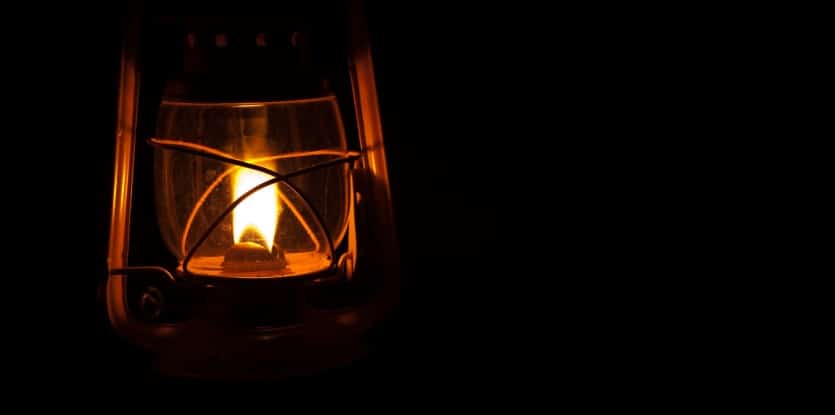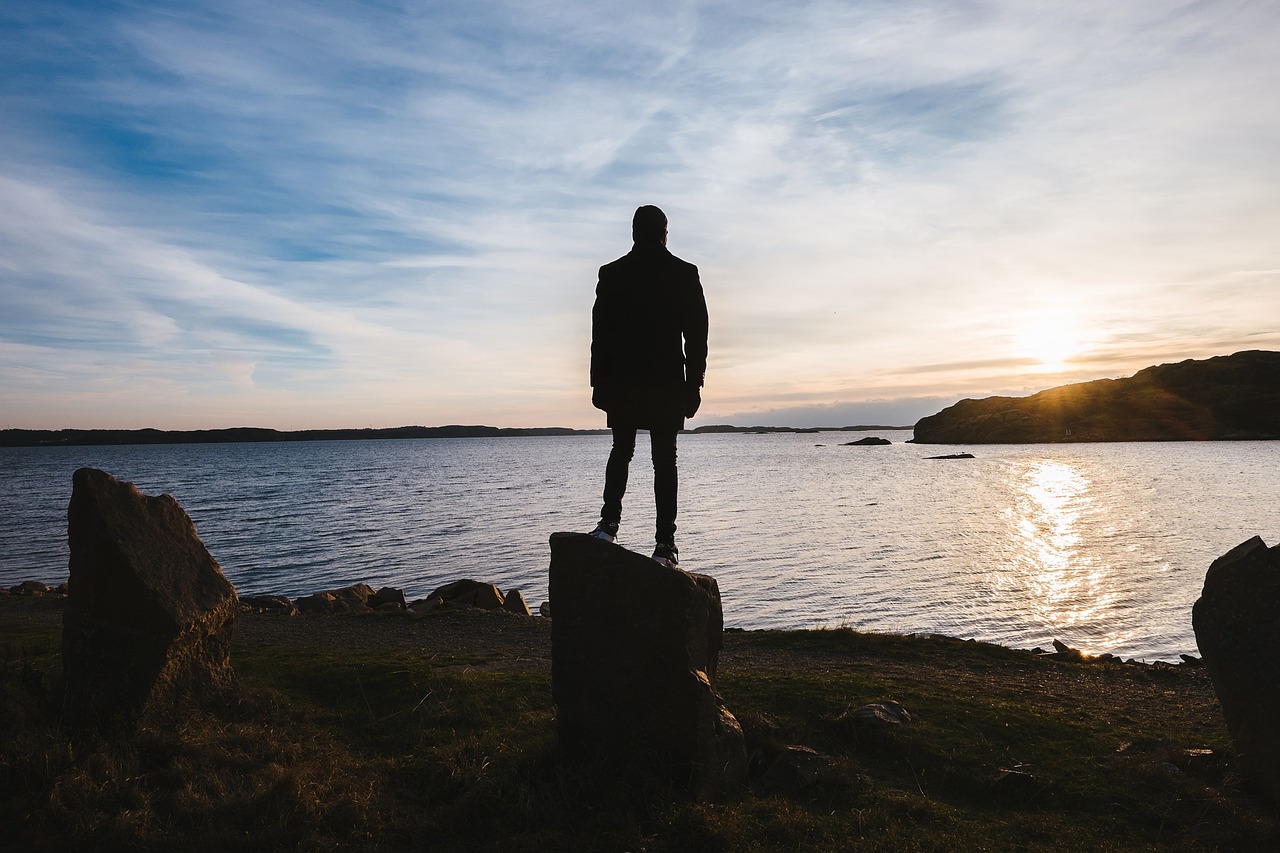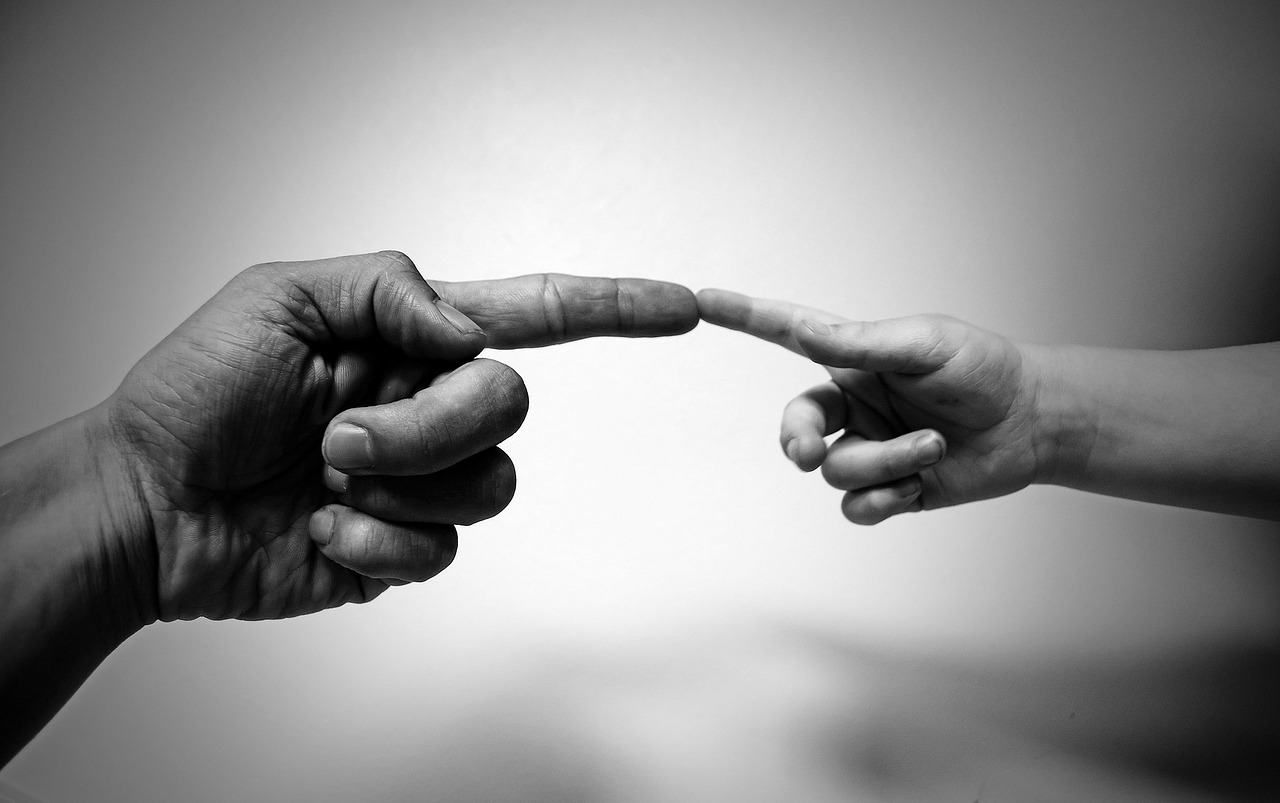To Strike and to Heal: Lessons from the Egyptian Exodus on Destruction and Redemption
Passover, which is quickly approaching, is in essence the story of the classic battle between good and evil, and how good prevails. In truth, almost all enduring narratives contain this theme in one way or another.
The confrontation between good and evil is immediately recognizable to every one of us; it resonates in the struggles we each face in our own lives. At the same time, good and evil provide us with a stark contrast of opposites, a crystallized perspective – even if it may seem simplistic – on the nature of things, which, as strange as it sounds, is refreshing and even offers a measure of relief amidst the din of confusion that consumes much of our lives. The clarity of knowing your enemy is far more empowering than the doubts of not knowing who your adversary may be and when they may strike. That is why the analysis of a problem – and the identification of its root caused (as opposed to its symptoms) is the key to any solution. Awareness, our sages tell us, is half the cure of a disease.
But the problem is far more complex than it may initially seem: Is there such a thing as absolute evil? Can we always identify good from evil? Especially when we know that “there is not good without bad, and no bad without good.” When evil is intertwined with good, how do we go about eliminating the evil without also hurting the good?
One of the darkest phenomena bemoaned by mystics is, what they call, “taaruvot tov v’ra,” a disturbing concoction, which snowballs good and evil into one witches’ brew. This confusing “cholent” can be far more lethal than plain evil. When good and evil are two distinct entities, you can at least identify the enemy and deal with it accordingly. But when the enemy is hiding amidst your friends, when the evil is buried within the good, where do you begin? The lack of clarity allows the evil to grow, besides for demoralizing us and sapping our resolve to fight an invisible enemy. Some of the worst diseases known to mankind are the ones in which parasites or malignant cells intertwine themselves and “hide” between healthy cells. Once they embed themselves, the only way to eliminate them is by killing, G-d forbid, good cells together with the bad ones.
An interesting Passover related verse can teach us much a about the distinction between good and evil, and the complication involved in extricating the good while eradicating the evil.
And the L-rd shall strike (plague) Egypt, striking and healing, and they shall return to the L-rd, and He shall accept their prayer and heal them (Isaiah 19:22).
Two opinions are posited about the meaning of this verse: Rashi and the Talmud interpret that the verse refers to the first nine plagues, in which the “striking and healing” both happened to the Egyptians: first they were struck by the plagues (which were brought on by Aaron), then they were healed (by Moses’ prayer). The Zohar (II 36a), however, explains that the verse is referring to the tenth plague, when the Egyptians were “struck” and the Israelites “healed,” and both things happened at once (not in two stages).
We see from this that even when the evil was being struck it was also being healed. Until the last and final plague, which came to utterly destroy the evil. But even then, it was not about total destruction; “healing” took place for the good that remained.
Chassidic literature elaborates on the midnight before the great Exodus from Egypt. On that dark and mysterious night, at the moment when the clock struck midnight, the oppressors were struck and the oppressed were healed (“nogof l’mitzrayim v’ rofoh l’yisroel”), evil was vanquished and good prevailed. How can one distinguish between good and evil when they are all mixed together? This requires a unique Divine power, revealed at midnight, when love (chesed) meets discipline (gevurah) and opposites come together – a force that can separate between the good and the bad, and simultaneously address each accordingly (see Passover discourses of 5705).
* * *
One comment on my last article, Service or Slavery? was particular pointed and deserves a response.
Here is the comment:
Kathi Kreider, 03/12/2010
Subject: Nothing is completely evil?While I thought most of your article was well written and thought provoking, I have a serious problem with one section.You state that “Nothing on Earth is completely evil. Even the worst situations have some spark of the Divine.” Really? So murder, rape, and child abuse are not completely evil? They contain a spark of the divine? What does child abuse teach us about the “Divine it reflects” (to use your own term)? As an abuse survivor I would really like to know what attribute of “the Divine” it teaches me. Is it that Hashem is no more a father to me than my biological father was? Is it that Hashem is too busy to hear the cries of His children when they are in pain?I was under the impression that certain things were completely evil. Otherwise, why would Hashem destroy the world with the flood, after stating that man’s “wickedness was great” and “every product of the thoughts of his heart was but evil always” (Artscroll translation Bereishis 6:5)? If the Torah calls something evil, who are we to say it is not “completely” evil?
I don’t think anyone would disagree that these raw and heart wrenching words demand a reply. Just for the record: I asked Kathi permission to print her comment and she absolutely agreed, and to do so with her name.
What I now write is directed both to Kathi and to anyone else who may have a similar “serious problem” with what I wrote, and above all – to all those that have suffered in any way.
Before waxing philosophical (which is inappropriate regardless), allow me to begin on a personal note.
A great Rebbe once told his distressed student: “I don’t have answers for you. But I can cry with you.”
My heart goes out to you, Kathi, and to every one who has in any way been abused and hurt, in any fashion, especially by parents and close ones. I will never be able to imagine the depth of anguish, pain and the long-term impact that abuse has on every aspect of a person’s entire life.
It is plain folly and foolish arrogance – if not worse – to even make an attempt “explaining” to a tortured soul how there is “good” in the evil they experienced. That is not the way of the wise. That is not the way of Torah, That is not the way of love. A mind, no matter how brilliant, cannot speak to a bleeding heart. Intellect and emotions speak different languages. Silence – and only awesome silence – remains the ultimate response in the face of atrocity. “Vayidom Aaron”, Aaron was silent when his two sons were ripped away from him in their prime. “Shetok” – be silent! Is what G-d declares when He was challenged how He can allow good people to suffer; “is this Torah and is this it’s reward?!”…
And yet. Despite the inexplicable nature of cruelty and evil, humans were given the power to console each other. We can cry together, and we can – and must – storm the heavens in outrage against the suffering innocent.
We do not attempt to justify G-d or find merit in abuse. Evil is evil. Period.
There are those that preoccupy themselves with trying to reconcile a good G-d with the evil in the universe. They call it theodicy: how do we explain an omnibenevolent and omnipotent G-d allowing for evil. Theodicy comes from the Greek theós (“G-d”) and díkē (“justice”), meaning “the justice of G-d,” or “to justify G-d” or “the justification of G-d”. But though Jewish mysticism does discuss the paradox of evil in face of a good G-d, interestingly, it never tries to justify G-d. Indeed, when one religious leader suggested reasons that justified the Holocaust, a great Rebbe silenced him saying: “G-d does not need an advocate…”
Because after all is said and done, analyzing and pontificating why terrible things happen is perhaps an exercise that bystanders can indulge in (and pat their backs for having the courage to address such a thorny subject). But it is not a luxury that someone who has experienced – actually experienced – loss and pain can allow themselves to have. No one should ever know of tragedy, but when it strikes the mind and all its philosophies is left ineffective, to put it mildly.
And oddly, when one allows the silence and humility in face of suffering to take hold, it has a mysterious healing power. Once you don’t attempt to dismiss away or justify the pain, once you acknowledge its fierce and brutal power, and you see that it has not destroyed you and your spirit – in a strange way that which doesn’t kill you makes you stronger.
I have witnessed the extraordinary refinement of people who have suffered, a refinement that you do not see regularly. It’s like a unique light that shines from their countenance; a glow that is both concealing as it is revealing. Like those deep-furrowed wrinkles of a war-torn veteran – both painful yet knowing.
And yet. Despite the silence and acceptance. Despite the lack of explanation and understanding of evil, once you “let go” of trying to rationalize and control it, a deeper wisdom settles in. Not one that understands evil or its meaning; not one that even tries to explain the purpose of evil. But one that begins to sense that the darkest crevices of human experience reveal a deeper truth, a bigger picture – an unfathomable mystery to the very nature and purpose of life.
The question becomes not how or why can evil exist in the presence of a benevolent G-d, but what allowed for it to emerge in the first place, and above all: What are we to do about it? We don’t ask why, but what we can do. Because, you see, it is simply unacceptable that we remain “victims” to the abuse and evil we may have endured. There must be a way to redeem the experience – a way to grow from it.
This is a far cry from trying to explain or justify the abuse – something that we can never do. The perpetrator is always responsible for his actions and will always remain accountable. Any type of justification would be as obscene, if not worse, than the initial abuse. In the same vein, it would be even more terrible to say that the abuse is the end of the road for the “recipient” – the survivor. Nothing can be more horrible than to argue that the criminal has control over the destiny of the survivor forever!… No one (even one who has been victimized) can be forced to remain a victim. That would be the devastating equivalent of saying that someone can irreversibly murder another person’s soul, with no hope for revival.
Enter the mystics, and explain that even the deepest evil has a speck of good. No – not that there is any good or justification in the evil perpetrated; but there is good hidden somewhere in the broad scheme of things, especially in how it affects the survivor’s life, that can be redeemed.
Firstly, nothing can exist without a Divine force energizing it. Second, as mentioned, if evil and all its consequences control everything that it comes in contact with or crosses its path, we, innocent victims would never have the possibility of healing and rebuilding our lives.
So how then do we explain absolute evil? Where is the Divine spark in this evil? Explain the Chassidic masters, that “the Divine spark in evil has become so distant and dark that it is considered as if it itself evil.” When an entity perpetrates evil the Divine spark that gives life to the entity becomes completely trapped and overwhelmed by the surrounding darkness. Think of it like a black hole, where the gravitational pull is so strong that it does not allow any light to be released.
The only way to release the Divine spark is by destroying the evil. “Their destruction is their repair.” And when the evil is destroyed we have the power to transform the remaining spark (which once was trapped to the point that it took the shape of evil) into a force for good, the “transgressions become like virtues.”
The crimes themselves (like murder, rape and child abuse, mentioned by Kathi) are completely evil. Their only fate and redemption is total and complete eradication. Yet those that have endured the crime have the ability to not remain “victims” and feel “forever damaged.” They have beautiful souls, which have the power to transcend and grow through the process.
G-d indeed destroyed the world when it “was filled with corruption and violence,” man’s “wickedness was great” and “every product of the thoughts of his heart was but evil always.” “Their destruction was their repair.” But G-d did not destroy everything; He only destroyed the evil forces, leaving the Earth intact – including the waters, fish, and of course Adam and his family, and representatives of every animal species, pure or impure. We see from this that 1) evil is redeemed through its eradication. 2) there always remain elements of good that emerge once the dominant evil is diminished or eradicated.
This is a very delicate and abstract subject, which requires much contemplation and emotional investment to appreciate. And I risk misrepresenting the full magnitude of the issue. Yet, in an attempt to help us all find some redemption in our suffering, it is well worth the effort to try conveying some of the idea in these lines.
So yes, “Nothing on Earth is completely evil. Even the worst situations have some spark of the Divine.”
In our dark and difficult world good and evil are intertwined and the true secret is to learn the balance of “striking and healing,” how to crush the evil while redeeming the good. When evil has violated the good, it is relatively easier to resort to one of the two extremes: Destroy everything, bad and good. Or tolerate the evil so that the good can survive. Passover teaches us the third path: Striking and healing – destroy the evil (which is its true repair) and release the good.
For this we absolutely are in need of Divine power – the same power that emerged the midnight before Passover – a force that allows us to achieve the ultimate paradox: Vanquish the oppressors while freeing the oppressed.








The Rabbis point out that the yeitser ha-ra has many functions, some of which are necessary for life and human life in particular. Thus, to that extent there is good in and of the yeitser ha-ra. But the default of the yeitser ha-ra is evil which, if unchecked, automatically grows to the diabolical level. The yeiter tov is thirteen years younger than the yeitser ha-ra. A cogent case can be made that the yeitser tov is but a recursive instantiation of the very energy of the yeitser ha-ra whose function is to limit the horror when the yeitser ha-ra is left unchecked. In other words, good has no autonomy of its own but evil does. Good can only occur as reactive to the unchecked energy of the yeitser ha-ra.
I, too, have suffered greatly at certain points in my life and have come out the other side knowing that the good in it is that I can help someone else who is going through the same thing. I can tell them I know how they feel because I have been there too, and that there is hope. Most of the self-esteem I have has come as a result of helping someone else on the same path. To me this ability is a gift I have been given and I never lose sight of it.
Im very glad that Kathi Kreider wrote to you and that you responded in such a careful and full way. I, too, was sexually abused as a child. When I was a little girl of two or three my teenage cousin assaulted me in the mouth and then held me over the dumbwaiter shaft and threatened to drop me if I ever told anyone. I repressed this memory and only accessed it with the help of a therapist (and other helping professionals) when I was 40 years old. After much healing work I was able to feel fairly normal again, but I was understandably furious with my cousin. One day I was reading Rebbe Nachmans book, On Suffering and had an epiphany in which I realized that I didnt hate him any more; I felt sorry for him. A huge weight lifted from my heart; I felt freed.
I now believe that I am a more compassionate person than I would have been if I hadnt been abused; so I guess one could say that my compassion is the spark of the divine that was released by the healing from the abuse.
Thank you for everything you do.
Michele (Meira Bracha) Sumka
I lost a child who commited suicide after witnessing genocide in Rwanda? I just returned from Israel to see another horror unfolding. What do we do with this situations. Many Jews quite willing to wipe out the enemy. They are becoming what they hate? Can Israel strike and heal Who are our enemies there? Some Arabs/ Palistinians are not our enemies. I wept a lot when I was there. I dont know how peace can happen without murder,perhaps by Jews this time. Confused.
Hope all is well with you Rabbi and is good to see you are prospering. When you quote: And the L-rd shall strike (plague) Egypt, striking and healing, and they shall return to the L-rd, and He shall accept their prayer and heal them (Isaiah 19:22)., you suggest that this is in reference to Exodus. Yet, the prophet lived much later and as I read the rest of the chapter there is clear indication to me that the prophet is talking about a future time (even mentions Judah creating an alliance with Egypt and Assyria (Syria?). How do I reconcile these? Also, you mention that our sages said that knowing the problem is half the solution. I have myself referred to that statement in the past when talking to people but never occurred to me that this was stated by our sages of old. Can you direct me to a place where I can find the original source for this?
I like many have had bad things in my life of course, i.e. abuse, addictions, mental disorders of ourselves or a close family member — which can all take a terrible toll on us. For me to try and understand why G-d has given me this is smug. This self-righteousness of thinking we can understand G-d. Perhaps without knowing why I can still learn from it and become a better person by giving myself and will to G-d. Let go and let G-d.
Thank you for acknowledging the issue of evil in abuse, and for not trying to give easy facile answers.
In a conversation with Rabbi Harold Kushner my friend advocated the concept of Gods limited Omnipotence to explain the great natural disasters
Rabbi Jacobson,
I want to thank you so much for writing this incredible article on the nature of good and evil. It is a subject that is really impossible to explain to most people. You understand the separateness of intellect and heart, and that it is the heart, not the intellect, that leads us to our soul. And you do it in such a sensitive and compassionate way.
I want to elaborate on one of the concepts you touch on: healing the evil. You bring up the Passover verse, And the L-rd shall strike (plague) Egypt, striking and healing, and they shall return to the L-rd, and He shall accept their prayer and heal them. I volunteer for an organization called Alternatives to Violence Project which does work with inmates in the prisons. One of the people I work with is a former abuser who is now devoting his life to helping violence-prone gang members. This is also true of most of the inmates I work with. I have seen some of them almost start to cry when recalling the harm they had done to others. They too are now engaging other inmates at a soul level. These people have started to turn their lives around and are beginning to discover their true selves –what lies beneath the anger and goes to make us human beings.
You show two opinions posited about the meaning of this Passover verse. While they seem opposed to each other at first glance, I dont believe this is so. Both the abusers and the abused can be healed and grow to be stronger from the experience. In an odd (and what some may call a perverted) way, both the abuser and the abused may be helping the other. How each responds is up to him or her since G-d has given us free will. Its all in His plan.
In my attempts to find healing relief from extreme situations in my life, I have finally come to understand the fullness of this statement: Vengeance is Mine sayeth the Lord.
The act of Forgiveness is meant to help my own self heal, as I hand over all ideas of retribution to the efficiency of G-ds Spiritual System which includes Karma, aka Cause and Effect (divine payback, if you will). G-d gave us Free Will along with guidelines for what works well. Those who decide to make their own rules will find themselves carrying the consequences. Its not up to me to see that they get it. Besides, Why should I be tortured by things that Im sure the perpetrators find ways to erase from their minds. Im done carrying around their guilt for them. So I release it back to them and let the system work without any static from me.
Also, its not that G-d is vengeful, but we humans love the idea of it, so He uses the word that we understand. Once I give up all obsession of holding evil-doers to any kind of accountability, I find myself feeling free of the shadow of whatever they perpetrated against me. The cloud of victim energy releases its smothering hold on me and allows me to live a smarter and stronger life. I release my divine sparks back to myself.
I have been strengthened and made wise by my experiences, and it is through this window that I choose to see the Light of G-d as I interpret all my experiences. I dont turn a blind eye to evil, rather you can be sure that I dont allow it to play games around me.
And by learning how to connect with G-d and raise my spiritual vibration, I can reach beyond time and space to send love and healing to the helpless little girl that I was. I empower my soul to rewrite my experiences as I inject Mercy into my judgments of my former slavery.